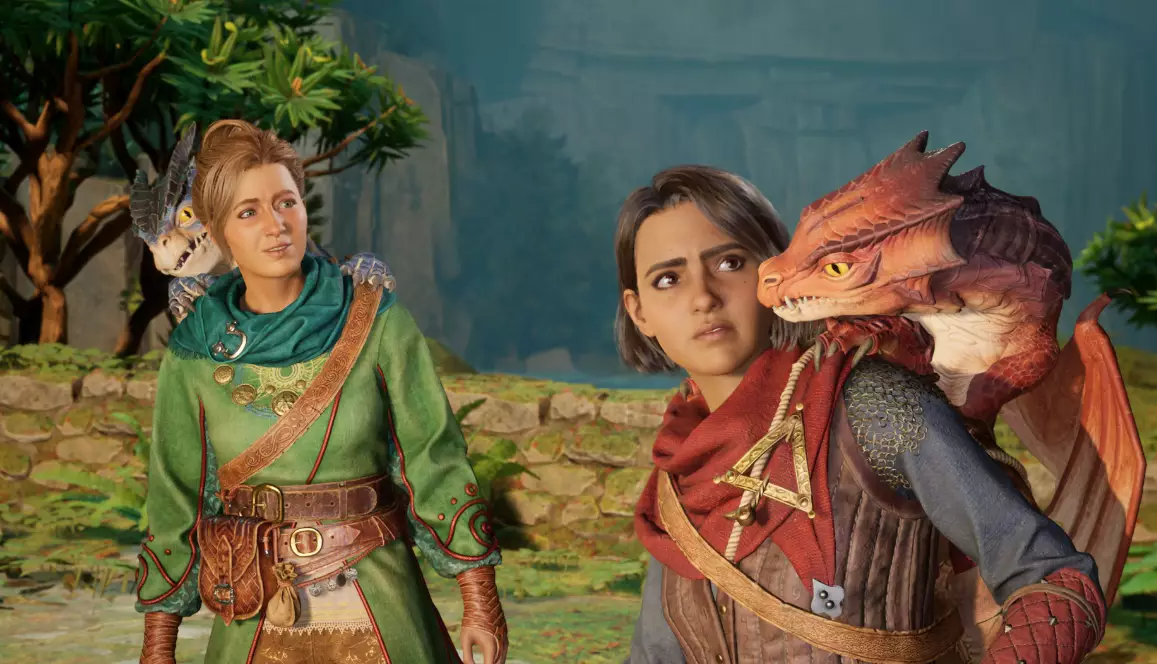After the tremendous success of *It Takes Two*, which sold over 20 million copies, developer Hazelight Studios is set to unveil its highly anticipated title, *Split Fiction*, in March. This game ventures into a narrative that critiques the exploitation inherent in modern technology, where characters Mio and Zoe confront a machine that siphons creative ideas from writers without proper compensation. This theme resonates strongly amid growing concerns about artificial intelligence (AI) infiltrating creative industries, particularly video game development.
Josef Fares’ Perspective on AI
Josef Fares, the outspoken founder of Hazelight, shared his candid thoughts about AI during a recent interview with VGC, highlighting the duality of excitement and fear surrounding this transformative technology. “It’s both scary and very exciting,” Fares declared. His stance emphasizes that the gaming industry should not resist AI but rather adapt and integrate it to enhance the overall gaming experience. He articulates a vision where new technologies are embraced as tools for improvement rather than seen strictly as threats.
Fares raises an essential point: as AI increasingly becomes part of the gaming landscape, it is imperative for developers to explore and utilize its potential. His views echo the sentiments of many industry professionals who recognize that while AI may displace certain roles, it also fosters new creative avenues and efficiencies. However, the transition to this new phase is fraught with challenges, primarily the fear of job losses, an issue that is, understandably, a significant concern for game developers today.
A recent study indicates that a significant portion of game developers currently employ AI tools in various aspects of their work. This integration often helps streamline processes, from game design to quality assurance, igniting debates about job security in an industry already marked by volatility. On one side, industry giants like Electronic Arts acknowledge that AI might result in short-term job loss, but they posit a long-term vision of increased job creation as new roles emerge to navigate the evolving landscape.
Contrastingly, Take-Two Interactive’s chief, Strauss Zelnick, presented a skeptical view, labeling AI as an oxymoron and asserting that genuine learning remains a uniquely human trait. This juxtaposition between optimism and skepticism signifies the complex nature of AI’s role in gaming. As is often the case with technological advancements, the debate is nuanced, eliciting strong reactions from various stakeholders across the gaming community.
Fares anticipates a future where the implications of AI are profoundly impactful, potentially surpassing those of the internet. He recognizes the sensitive nature of the topic but insists that ignoring AI’s reality is not an option. “You can’t just close your eyes,” he remarked, indicating a commitment to engaging with this complex issue head-on. His comments also underline the notion that while AI’s impact is imminent, its successful integration into game development will take time.
This discourse around AI is particularly pressing given the ongoing strike involving video game performers. An integral point of contention within the strike revolves around AI, as many in the performance sector fear its potential to undermine their livelihoods. Veteran voice actor Jennifer Hale has emphasized the “existential” threat posed by AI to the art of video game performance. This concern underscores the critical need for industry dialogue about the ethical implications and future regulations surrounding AI technology.
As Hazelight prepares for its upcoming release, *Split Fiction*, it stands at a crossroads of creativity and technology. The game’s narrative not only serves as a poignant commentary on the exploitation of artistic labor but also mirrors the pressing conversations surrounding AI’s role in the industry. With leaders like Josef Fares advocating for a proactive approach to AI, the gaming community must grapple with both the opportunities and challenges it presents. Embracing AI could reshape the creative landscape, but it is crucial to navigate this transition with care and consideration for those whose talents are at stake. As the industry evolves, it remains imperative for all stakeholders to engage in meaningful discussions about the ethical use of AI to ensure a future where creativity thrives alongside technological advancement.

